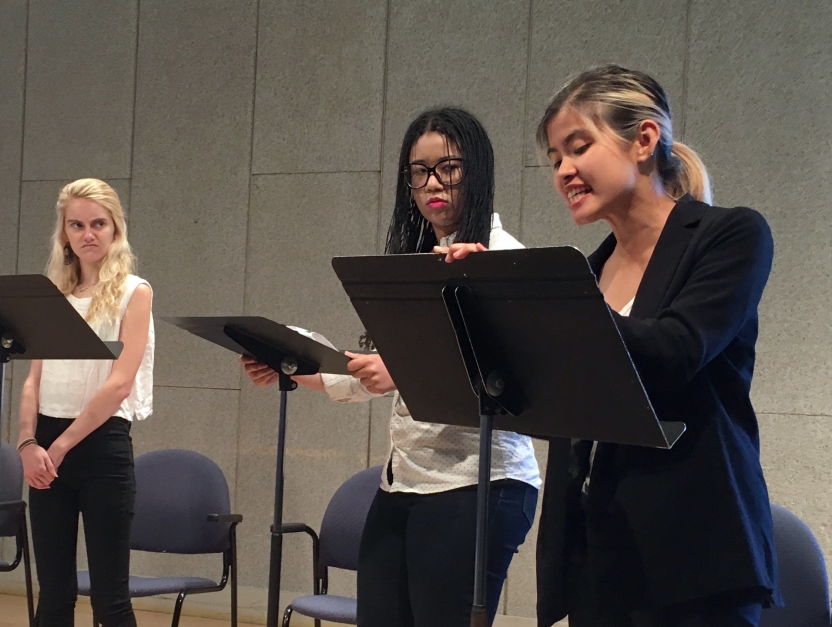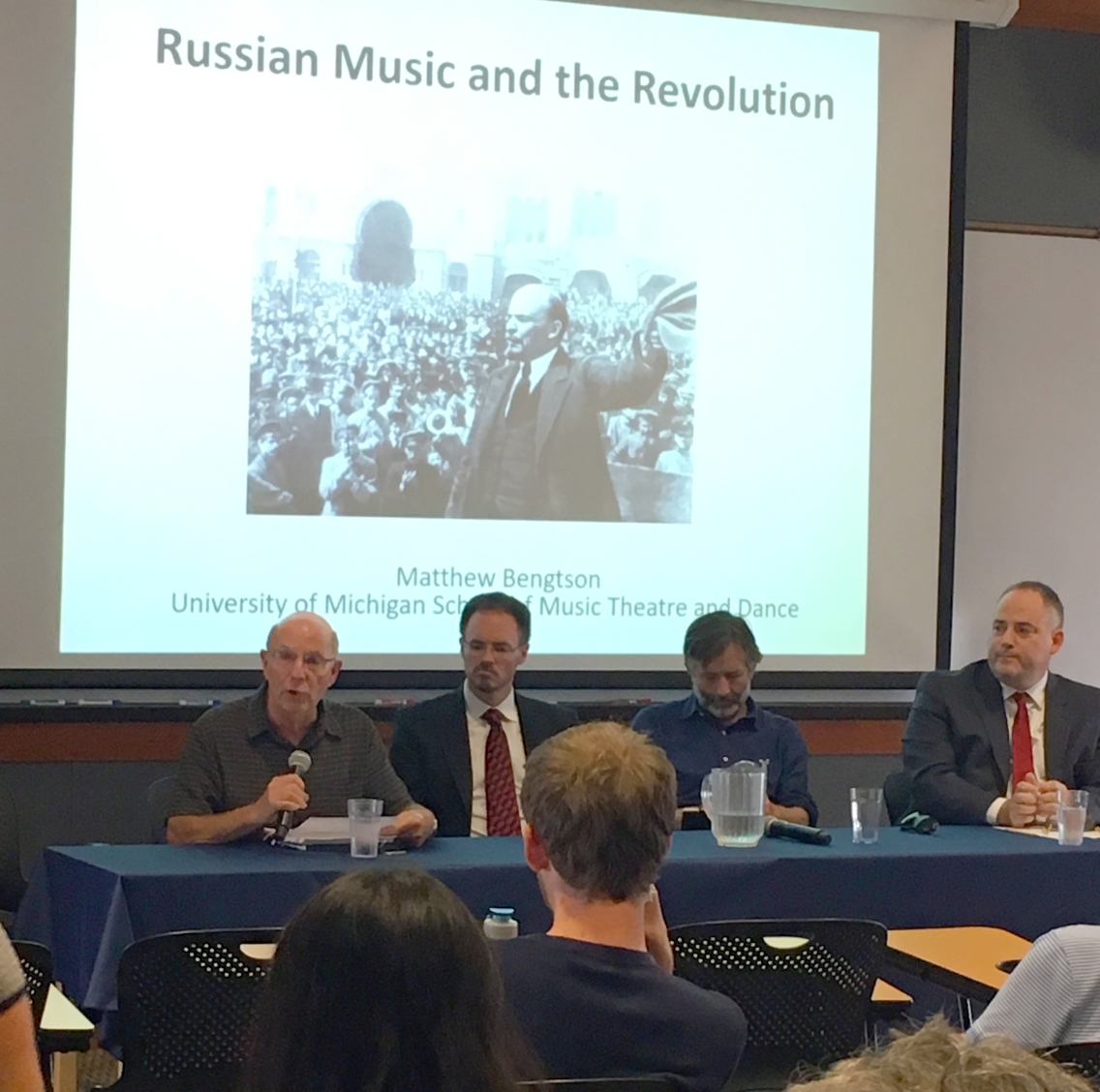Understanding the Russian Revolution, 100 Years Later

MIDDLEBURY, Vt. – The lasting legacy of the Russian Revolution took the spotlight at Middlebury for three days when the annual Clifford Symposium, “The Soviet Century: 100 Years of Russian Revolution,” delved into the Boshevik revolt and its long-lasting aftermath. Through a series of panel discussions, guest lectures, performances, and art exhibitions, the campus community engaged numerous topics related to the formation of the Soviet Union and its major presence on the world stage during the twentieth century.
On the second day of the symposium, seven Middlebury students performed a staged reading of scenes from Vsevolod Vishnevsky’s famous Soviet propaganda play An Optimistic Tragedy, directed by Assistant Professor of Theatre Michole Biancosino. The play, performed for an audience of faculty, staff, and students at the Mahaney Center for the Arts, depicts the formation of the first communist naval regiment and their female party commissar, who is sent to instill order.
In 1932, when the play was written, the age of avant garde experimentation in Soviet culture was coming to a close, noted Visiting Assistant Professor of Russian Matthew Walker in commentary between scenes. The Communist Party, instead, was increasing demands that art correspond with the tenets of socialist realism, or the “depiction of reality in its revolutionary development.”
Walker said that, while the most famous images associated with the Russian Revolution involve crowds storming the gates of the Winter Palace in 1917, the play, which will be performed in St. Petersburg this fall, was written at a moment in the revolution when order had to be introduced. Walker wondered whether contemporary productions of the play might represent a safe choice in a political climate that is increasingly fraught for artists.
“Nobody in the Russian government right now wants to see images of people storming government buildings,” said Walker. “They don’t want to give anyone any ideas. So it’s going to be interesting to see how this performance in Saint Petersburg is going to negotiate this.”

On Friday afternoon, a group of Russian scholars continued the arts theme with a panel titled “Art and Revolution.” Professor Emeritus of Russian Michael Katz discussed the subject of his recent research, Boris Viktorovich Savinkov, a writer and shadowy revolutionary who was responsible for the assassinations of several high-ranking imperial officials in the early 1900s. Concert pianist Matthew Bengtson discussed the roles of several 20th century Russian composers during the revolution, especially Alexander Scriabin, the focus of his scholarly research. And Steven Richmond, author and alumnus of Middlebury’s Kathryn Wasserman Davis School of Russian, spoke about censorship in the early Soviet days—particularly the transformation from a system open to discussion in the 1920s to a locked-down, politically perilous system starting in the 1930s and continuing through modern times.
President Laurie Patton then introduced Friday’s keynote speaker, Mark Steinberg, a professor of history at the University of Illinois, Urbana-Champaign. Steinberg discussed “The Russian Revolution as Utopian Leap.”
On Friday evening, pianist Bengtson played a concert of “Music in Revolutionary Russia” interspersed with commentary from Assistant Professor of History Rebecca Mitchell, one of the symposium’s organizers. Additional lectures and panels delved into “The Black Vanguard of Internationalism;” “The Revolution Abroad;” and “The Dark Side of Utopia.” Keynote speaker Mark Harrison, professor of economics at the University of Warwick, gave a closing lecture titled, “The Soviet Economy, 1917–1991: Its Life and Afterlife.”
Susan Buck-Morss, Distinguished Professor of Political Science at CUNY Graduate Center and Jan Rock Zubrow ’77 Professor Emerita of Government at Cornell University, had set the stage for the symposium on Thursday with their opening keynote talk at Robison Hall titled “Revolution Today.”
Visual images of the Soviet era also played an important role during the Middlebury event. The Davis Family Library hosted a display of Soviet propaganda posters in the atrium and the Middlebury College Museum of Art is hosting an exhibition named for the symposium, “The Soviet Century: 100 Years of Russian Revolution,” which will be on view through December 10.
The annual Clifford Symposium is named after College Professor of History Emeritus Nicholas R. Clifford, who taught history at Middlebury College from 1966 to 1993 and who in his many years as a member of the faculty and administration cultivated critical inquiry. Clifford participated in this year’s symposium as a panelist in the discussion titled “The Revolution Abroad.”

